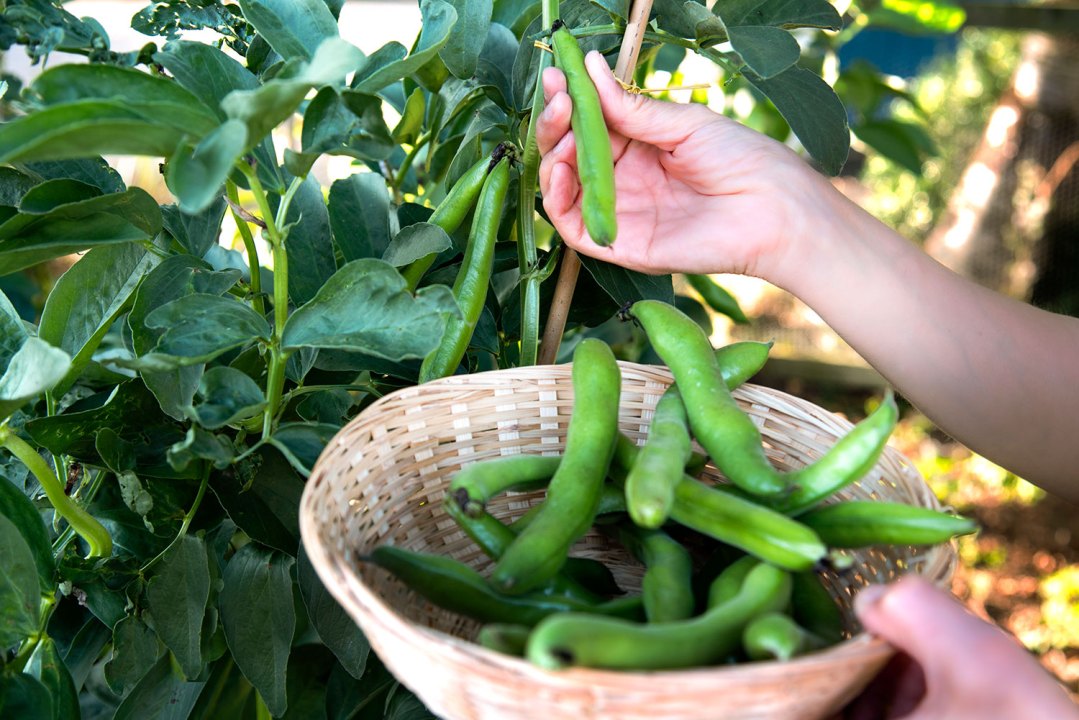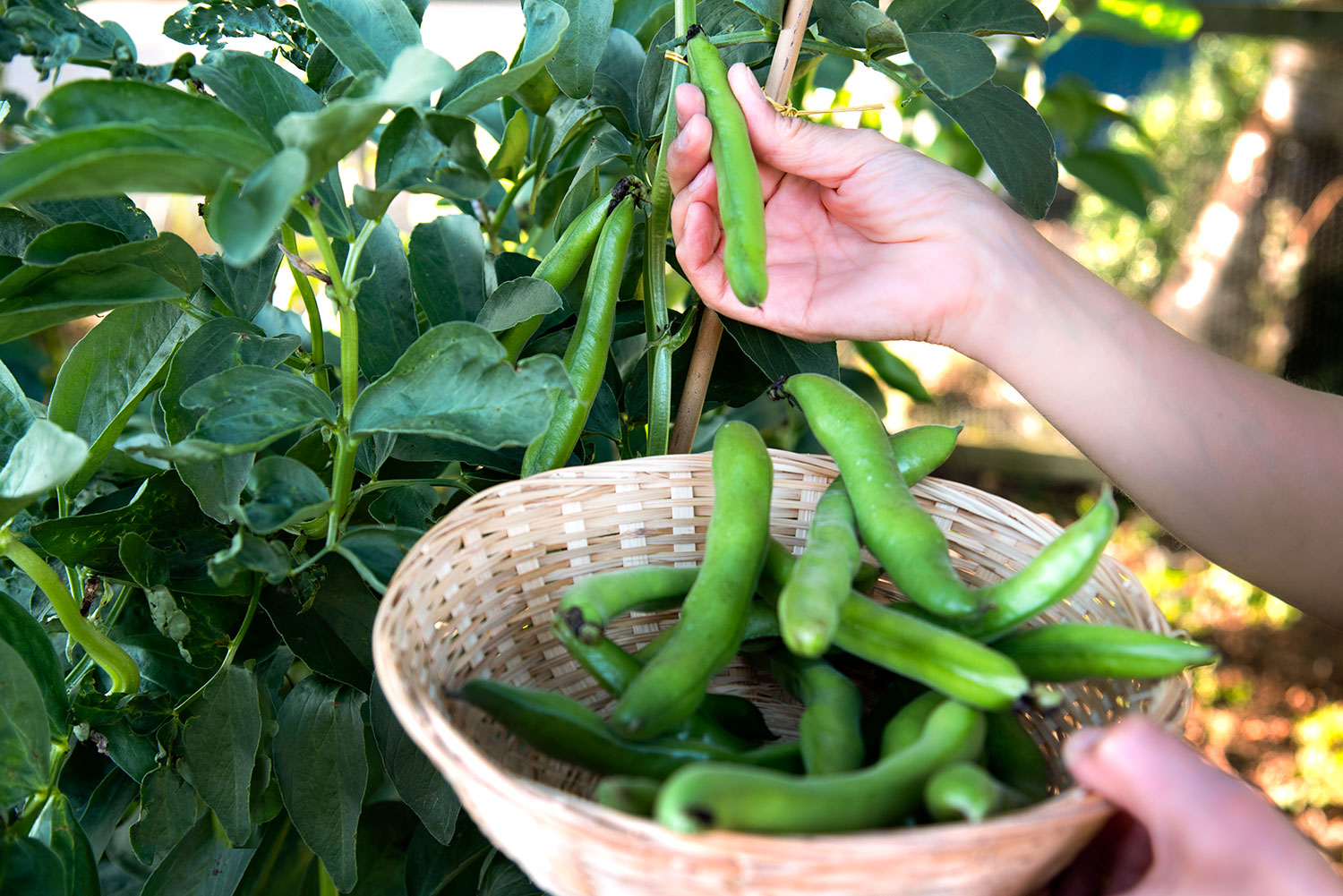Could you live off the land for a year without buying a single thing to eat? This was the challenge a retired journalist set himself on Radio 4 this week. Max Cotton lives on a five-acre smallholding near Glastonbury in Somerset with his wife Maxine, two pigs, two dozen hens and a Jersey-Friesian cross named Brenda. He also has six adult sons who, as far as this project is concerned, ‘prefer to pontificate than help very much.’
Cotton’s hopes for peas by April were even less realistic than I thought
Cotton conceded at the outset that he would allow himself to purchase salt as a necessity. For everything else, he turned to some ‘back-of-an-envelope type calculations’ and worked out that he would need to grow at least a million calories’ worth of food to sustain him year-round. This would equate to enough wheat to fill a tennis court, or an acre of cabbage if he ate nothing else.
‘Max, you do know some of these seeds are quite out of date?’ interjected his producer, Tessa Browne. Cotton’s confidence in the face of reality established the necessary sense of jeopardy in the first episode. Had he really thought this through? Had he prepared sufficiently to survive? Would anyone still be living with him if he did? One of his sons says to the producer: ‘No tea and coffee for a year? I hope you enjoy spending time with him.’
Much of the food Cotton prepared sounded less than mood-enhancing. There was bread so hard ‘you could put it in a cannon and fire it at someone’, tea boiled from nettles still rigid from the night’s frost, and butter which one regular maker said tasted ‘good… end-of-shelf-life’, before offering advice for improving its preservation. There was no theatre in Cotton’s proclamation that his baked beans, made with the previous summer’s tomatoes and honey, were ‘really important to me’.
Cotton’s mission was presented as ‘a one-man protest’ against our over-reliance upon supermarkets, imports and modern food systems. Reliably, he cited William Cobbett, the 18th-century pamphleteer, as ‘the first person to see industrialisation as the thief of our self-reliance’. But there was clearly also an existential dimension to this quest. What had he been doing farming all these years when he picked so much of his food off a shelf? Was it all just for fun?
We got a good sense from his monologues that to eat seasonally is to eat monotonously. Potatoes, potatoes, potatoes until the crop is finished. Eggs, eggs, eggs until the hens have gone off lay. Months of vegetarianism were followed by the traumatic slaughter of Brenda’s elder calf. Winter brought meat and the sound of feathers being ripped from the cold flesh of a turkey.
Cotton faced obstacles, including potato blight and corn-hungry badgers, but he seemed to take it all in his stride. As the sense of jeopardy set up at the beginning of the series began to wane, I wondered how much was lost while boiling down a year to five episodes of 14 minutes each. What kept it going was the input of Cotton’s family from the sidelines. Six sons and a larder of home grown food. What could possibly go wrong?
Cotton’s hopes for peas by April were even less realistic than I thought. Gardener Terry Walton, who records a ‘Plotcast’ from his allotment in the Rhondda Valley in south Wales, is expecting his peas to arrive in late May or early June. I’ve been listening to his updates on his various fruit and veg for the past couple of weeks. So far, no peas.
I am no gardener – radishes, cress and butternut squash are about the extent of my vegetable experience – but I find myself hanging on Walton’s every word. It’s soothing to listen to an experienced grower of over 60 years telling you how it’s done. Should I ever wish to grow broad beans, I now know to invest in blood, fish and bone fertiliser and, if there’s been a lot of rain, pellets of chicken poo, too. Are broad beans suitable for vegetarians, I began to wonder. With carrots, you can seemingly never have too many, though a plot of 90 feet may be pushing it for many urbanites.
Walton’s affection for his veg is delightful. ‘Nothing better than a popping pod of peas!’ he trills in his Welsh accent. ‘Look at all those asparagus spears popping their heads through that manure there!’;‘Ooh potatoes are in!’ I empathise with his ‘lonely looking’ shallots as they await their onion neighbours. Don’t worry, Walton assures us, there will soon be so many that ‘the birds will be playing Hokey Cokey with them’.








Comments